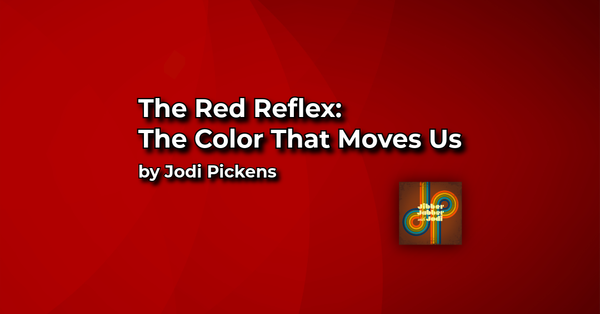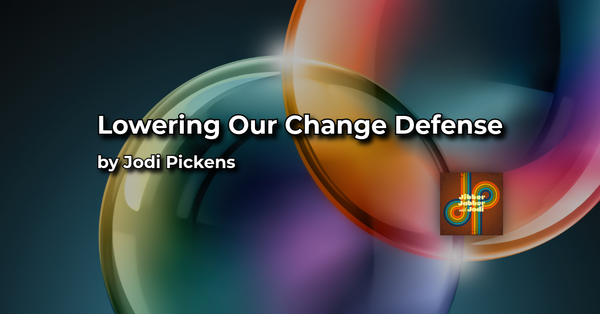Review: Star Trek Strange New Worlds: “Four-And-A-Half Vulcans”

There are episodes of Star Trek that make you laugh. There are episodes that make you think. And every once in a while, you get one that manages to do both at the same time—balancing the absurd with the profound. Strange New Worlds Season 3, Episode 8, “Four-And-A-Half Vulcans,” is exactly that kind of story.
On the surface, this is one of the funniest installments the series has given us yet. Watching Pike, Chapel, Uhura, and La’an transformed into Vulcans and then left stuck in their logical, monotone personas is a goldmine of comedy. From Pike loudly removing all chairs from the ready room for “efficiency,” to Chapel coldly ending every relationship she has because they are “a waste of time,” the episode revels in parodying the stiff stereotypes of Vulcans we’ve known since the days of Spock’s raised eyebrow. It’s classic Trek humor: exaggerated, playful, and deeply self-aware.
But beneath the laughs, the story is doing something much deeper. By trapping the crew in Vulcan logic, it asks: what do we actually value about being human? The answer becomes clear through the very flaws the characters lose when they go full Vulcan. Chapel’s capacity for connection, Pike’s instinct to balance duty with kindness, Uhura’s struggle to navigate her relationship with Ortegas’ brother…all of these things are stripped away under the weight of “pure” logic. Stripped of those qualities, they’re technically “better” officers, more efficient, more rational. And yet… they’re also hollow, alien to themselves.
Spock, of course, is at the center of this tension. He’s the one constantly reminded that he’s only “half Vulcan.” The irony is that his dual nature makes him the most balanced voice in the entire story. Where the others lean too far into pure logic, Spock is the one who recognizes its danger. He knows that without the messiness of emotion, without anger, joy, grief, and love logic becomes brittle and cruel. His half-human side, the very part he so often struggles with, is what keeps him grounded.
At the same time, the constant needling of Spock as “half Vulcan” doesn’t always land as harmless humor. In fact, it starts to feel like bullying. For viewers, especially those who are biracial or who live between cultures, the repetition risks reinforcing an old wound: the idea that being “half” of anything means being less. Star Trek has long prided itself on inclusion and representation, but here the gag misses the mark. Instead of being playful, it undercuts the very identity Spock has spent his life reconciling.
La’an’s transformation, though, takes on a darker edge. As an augment and descendant of Khan Noonien-Singh, her Vulcan state doesn’t just erase her emotions, it amplifies her capacity for aggression and control. Instead of clarity leading to calm, it leads to obsession: redesigning the Enterprise into a war machine, plotting conflict as the most “logical” path forward. Her heritage makes her experience with logic more dangerous than enlightening, a reminder that identity is never a blank slate. We don’t approach logic or emotion from the same starting point. Our history shapes how we wield both. For La’an, logic stripped away her restraint and revealed the shadow of Khan still lingering in her bloodline.
The episode also gives us a striking counterpoint through Una. When her former flame Doug, played with awkward charm by Patton Oswalt, reenters her life, it isn’t their logical compatibility that stands out, it’s their undeniable chemistry. It’s not scientific, not something that can be quantified or reasoned away. It’s emotional, messy, and utterly human. That spark between two people, unexplainable but palpable, becomes the perfect foil to the crew’s temporary Vulcan state. Where Pike, Chapel, and Uhura are suffocated by logic, Una and Doug remind us that connection thrives in the unpredictable, in the pull of feeling that logic alone can’t capture.
Still, for all of its humor and heart, “Four-And-A-Half Vulcans” is not without missteps. Beyond the “half Vulcan” bullying of Spock, the episode unintentionally brushes up against broader cultural wounds. Its treatment of difference, what makes someone “other”, can echo tones of racism, bigotry, homophobia, transphobia, ageism, and ableism. The suggestion that being “fully Vulcan” is superior, while humanity is messy and deficient, lands uncomfortably when viewed through a contemporary lens. Star Trek has always been at its best when it models inclusion and challenges prejudice; here, the satire risks leaning into the very biases it should be dismantling.
That’s the paradox of this episode: it reframes imperfection as strength while stumbling into harmful stereotypes. The crew’s laughter, awkwardness, even their bad decisions, are what give their lives meaning. To be human is to stumble, to want, to feel, to regret. “Four-And-A-Half Vulcans” reminds us that these are not flaws to be erased—they are the essence of belonging and connection.
In the end, when the serum is reversed and the crew returns to their human selves, they are horrified at their Vulcan choices. But that horror is telling. They’ve been reminded of something vital: emotions may be chaotic, but they are also the compass that keeps us from losing ourselves.
Strange New Worlds has always had a knack for playing with tone, but “Four-And-A-Half Vulcans” is one of those rare episodes that makes you laugh out loud while also leaving you quietly reflective after the credits roll. It’s a reminder that in a galaxy full of technology, aliens, and starships, the hardest and most necessary mission is still the same: to embrace the messy, beautiful truth of being human.
Author’s Note
As much as I enjoyed this episode, I couldn’t help but feel the sting of its missteps. The constant “half Vulcan” jokes read less like humor and more like the kind of casual bullying many biracial people endure in real life. And framing logic as “superior” while emotions are treated as a weakness touches nerves that echo real-world systems of racism, homophobia, transphobia, ageism, and ableism, where entire groups are told they’re “less than” because they don’t fit a rigid mold.
Star Trek has always been at its strongest when it champions difference as strength and models a future where no one is diminished for who they are. This episode comes close, but it stumbles by leaning into the very prejudices it should be dismantling. That doesn’t erase its humor or heart, but it’s a reminder that representation matters. Even in the 23rd century, we still need to be careful and mindful about how we tell stories of belonging.





